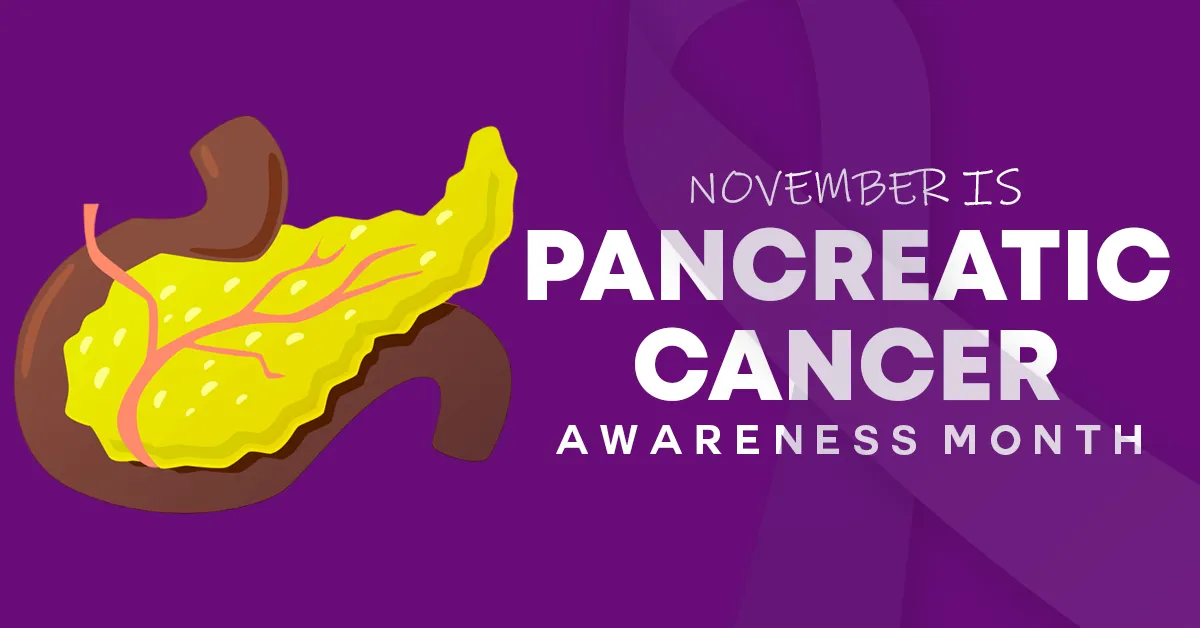The month of November raises awareness for many diseases. The resounding message? That early detection of these diseases can save lives. The same can be said about pancreatic cancer.
This year alone, the American Cancer Society estimated over 60,000 people would be diagnosed with pancreatic cancer. About 3% of all patients diagnosed with cancer are diagnosed with pancreatic cancer. Moreover, 7% of all cancer deaths are caused by pancreatic cancer.
What does your pancreas do?
Your pancreas is an organ in your body that makes the enzymes that help you digest food. Additionally, it produces insulin, which is crucial in managing your body’s source of energy. Because of this, diabetic patients are at an increased risk of developing pancreatic cancer.
These roles make up the two main functions of the pancreas, the endocrine and exocrine functions. Exocrine is for digestion and endocrine is for blood sugar management. About 95% of all pancreatic cancer diagnoses are exocrine pancreatic cancer.
For additional information, see this fact sheet from pancreatic.org.
How is pancreatic cancer identified?
Unlike colon cancer, which can be diagnosed with a colonoscopy exam, there is no specific type of screening that is used to identify pancreatic cancer.
Instead, only patients with symptoms or substantial risk factors are screened for pancreatic cancer. This is done with a series of imaging scans, blood tests, and biopsies.
Common symptoms include stomach pain, mid-back pain, unexplained weight loss, jaundice, loss of appetite, indigestion, changes in stool, or a recent diabetes diagnosis.
Unfortunately, these symptoms are often not prevalent early on, which can make early diagnosis difficult. This is why being aware of your family history and the common risk factors of pancreatic cancer is so crucial.
Additional Resources
The Pancreatic Cancer Action Network has a worksheet and interactive test on its website that can help individuals find a rough estimate of their risk for pancreatic cancer.
The test will assess if you fall into any of the highest-risk groups.
As mentioned previously, the risk increases with age and weight or if you currently are living with pancreatitis, diabetes, or are a smoker. Lastly, if any of your blood relatives have been diagnosed with pancreatic cancer, this raises your personal risk.


